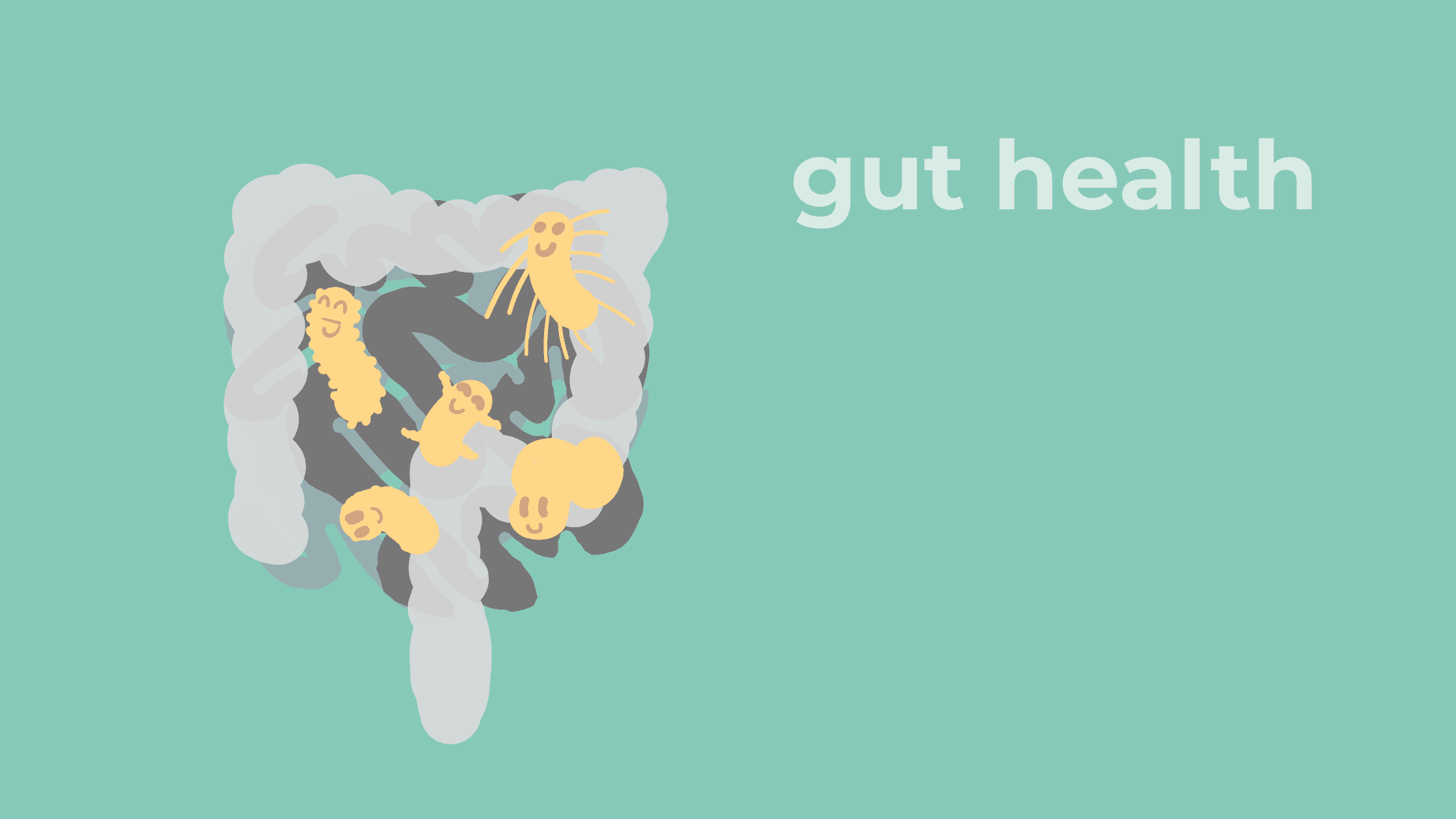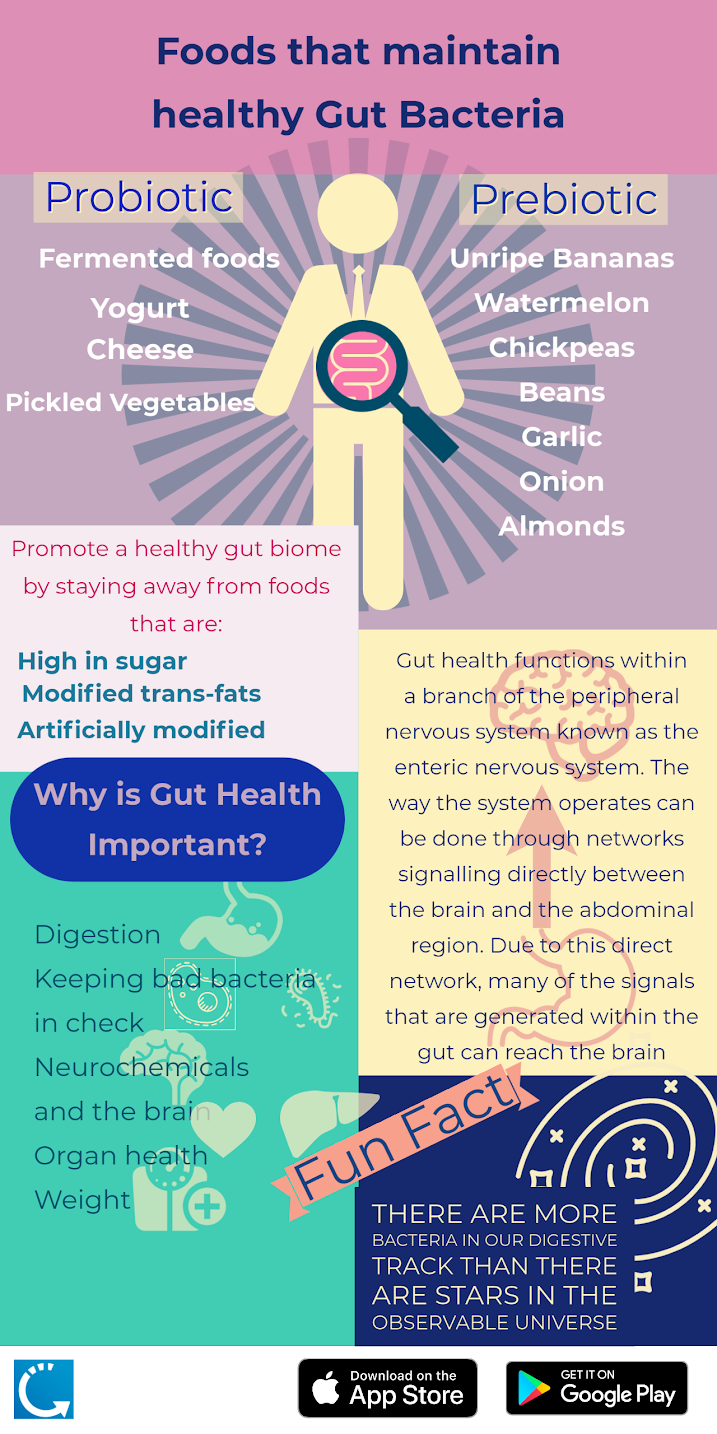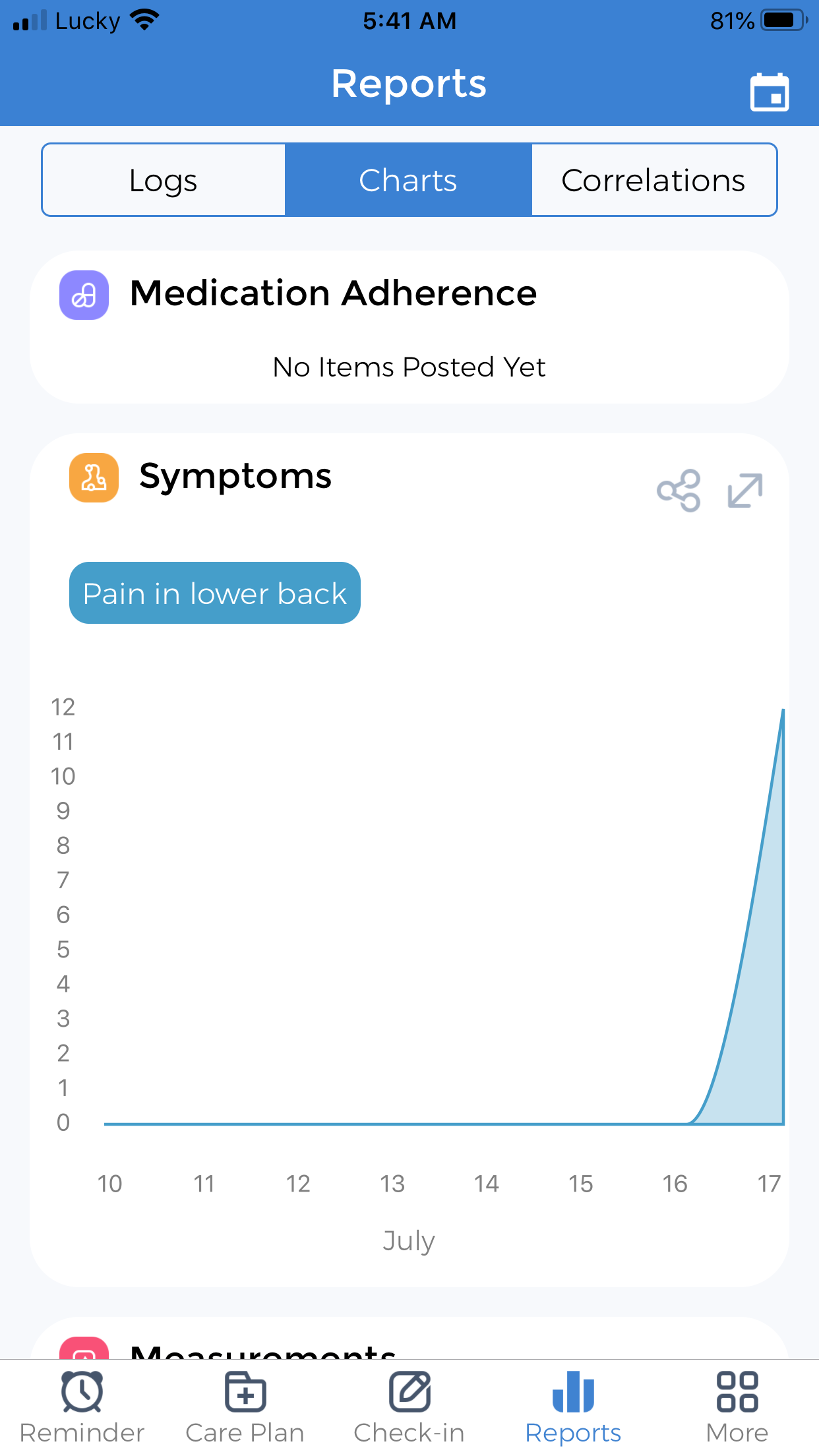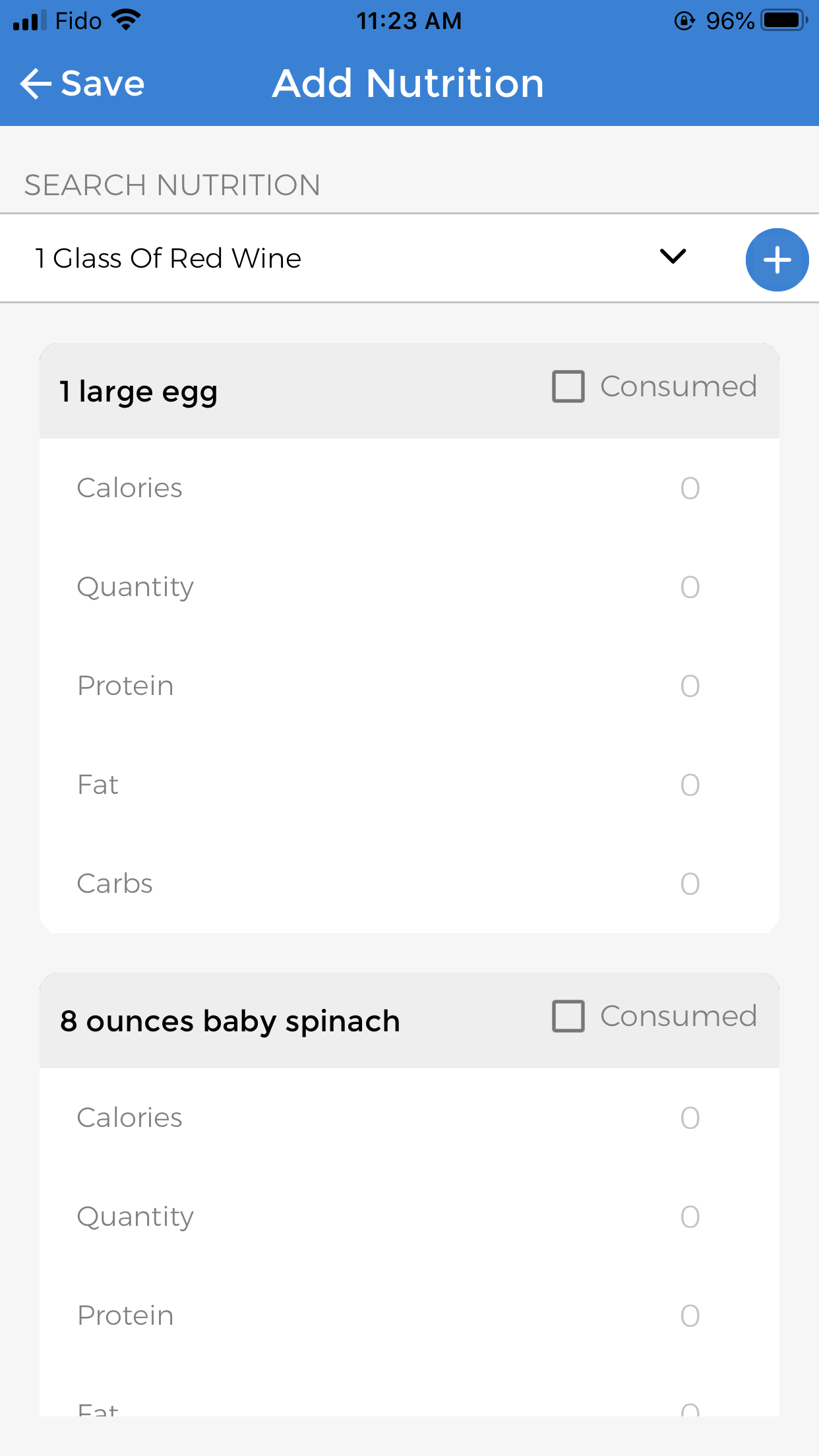
There’s an old adage in Eastern medicine: illness starts from what you eat. Today in western medicine, more and more data shows how important gut health is to our well being. Adjusting your diet to improve and restore gut health can be very beneficial for managing pain and improving overall wellness.
There is a movement to understand our gut and how it factors into our overall health. Scientists have been researching to connect the dots. From our gut to chronic disease, our gut and the connection with our brain, gut health and mental health. The term gut brain axis may not ring a bell, it isn’t something that is taught in school. In fact, most classical methods of teaching about the human body has left each system of the body separate to the others.
Restore Gut Health To Improve Your Overall Wellness
This concept of the gut brain axis is gaining a lot of traction in the field of health and wellness. It empowers individuals to take back control of their life. Those suffering from chronic pain or are constantly battling mental health difficulties have the capacity to be proactive in their health and wellness.
It turns out that having a healthy gut biome (the bacteria that live in your intestinal tract) is a major key to a more balanced body. So how exactly is this achieved and what can we do to improve our gut health? First we need to understand what the gut biome is.
What Does Gut Bacteria Do?
Here’s a fun fact: the number of bacteria that make up our gut microbiome exceeds the amount of cells that make up the human body by at least 10 times. Equally as hard to believe, it is estimated that our gut biome as a collective, outnumbers the amount of stars in the observable universe! (R)
So what does our gut bacteria do for us? Isn’t bacteria supposed to be bad?
Turns out not all bacteria is bad. Some live in symbiosis with us. What that means is that the bacteria needs a host to survive and thrive. In this case, we are the host. If we are negatively impacted by certain bacteria living inside us, than the relationship can be considered parasitic. However, many types of bacteria benefit us. It’s this benefit that the provide us that allows the relationship to be symbiotic.
Some things that our gut microbiome/bacteria affects:
- Digestion and breaking down of food
- Keeping bad bacteria in check
- Our brain, neurochemicals, and mental health
- How efficient we absorb food
- Our emotional state
- Organ health, including liver, heart, and kidneys
- Our weight
- Production of vitamin K (R)
In a nut shell, our gut microbiome does a lot for us! Our gut microbiome has also been linked to autoimmune diseases such as rheumatoid arthritis, heart health, low energy levels, and our immune system.
Why Does Our Gut Bacteria Affect Our Overall Health?
As listed above, our overall health can be traced back to the general health of our gut and the microbiota that exists within.
We have two main nervous systems in our body: the central nervous system and the peripheral nervous system. Our gut health functions within a branch of the peripheral nervous system known as the enteric nervous system. The way the system operates can be done through networks signalling directly between the brain and the abdominal region. Due to this direct network, many of the signals that are generated within the gut can reach the brain. It’s noteworthy to mention that our gastrointestinal region has a network separate of the central nervous system. This will allow the functions of our GI tract to function independently from the brain. Our breathing and heart also has backup functions that allow it to continue doing its job in case our brain is damaged.
So two things can be extrapolated from this information. Our gut health affects our overall health because it does these two things:
- It directly affects our capacity to digest and absorb nutrients
- It has a fairly direct channel with our brain, which controls the rest of our body
How Gut Health Can Impact Chronic Pain
The type of bacteria that lives within our intestines can have an impact on chronic pain. This means that what you eat can exacerbate any pain symptoms if you have a chronic condition.
Those who suffer from irritable bowel syndrome, leaky gut syndrome, fibromyalgia, arthritis, and any inflammatory based diseases can improve their circumstances by considering their gut health.
Foods to stay away from that set off inflammation are:
- Foods high in sugar content
- Artificially modified foods
- Modified trans-fats
If we can improve our gut equilibrium by promoting a healthy gut biome, it can be a powerful tool to protecting against future flare ups.
What Can We Do To Improve Our Gut Bacteria?
The constitution of our gut microbiome is shaped at birth, where we live, and what we eat. This means we have some control over how we can shape and improve the bacteria that lives inside our intestines. Having a well balanced and healthy diet is important to restore gut health.
Some foods that have high sources of probiotics:
- Fermented foods such as sauerkraut and kimchi
- Yogurt
- Pickled vegetables
- Cheese
- Fermented soy
We can also take probiotic supplements. These supplements often help to boost our immune system. One thing to take into consideration for probiotics is that they need food as well. So when considering a regimen of probiotics, also consider prebiotics.
Some foods that include prebiotics are:
- Unripe bananas
- Watermelon
- Chickpeas
- Beans
- Garlic
- Onions
- Almonds
The overarching takeaway from this list is this: foods that are high in fibre are going to pack a healthy dose of prebiotics. These foods are great to promote good gut bacteria.

Tracking Your Diet Can Help With Chronic Conditions
If you’re suffering from any chronic conditions such as diabetes, chronic pain, heart disease, Crohn’s, inflammatory bowel syndrome, or a number of other autoimmune disorders, you may want to consider adjusting your diet to improve your quality of life.
As mentioned earlier, our gut health can impact our overall health quite a lot. If you do have chronic conditions, every effort on your end can count!
Tracking your diet and your daily food intake will help you get into the habit of becoming more conscious of what you are putting into your body.
It’s possible to do it written, on your computer, or utilizing an app.
What’s important is that you develop the habit of tracking what you eat on a day to day basis. It’s also a good idea to schedule a certain amount of foods to intake in order to promote better health. Depending on your lifestyle habits, you can schedule daily intake of such foods. Alternatively, you can try meeting a quota of a certain amount of healthy gut promoting foods on a weekly schedule.
Track Your Diet To Help Heal Your Gut
Consider keeping a food journal to restore gut health. This will allow you to record information the preparation of the food, the quantity of what you have eaten.
Applications such as CareClinic’s nutrition tracker can be used to estimate portions and make better meal choices.
You can easily see if your diet is on track. You can develop a plan to improve the intake of certain foods that promotes healthy gut flora. The app also allows you to measure how many servings of foods you want to intake daily. CareClinic’s food log will allow you to see which foods and beverages contain added sugar and their influence on your mood. You will also be able to see if you are opting for unhealthy snacks upon being tired or stressed, or if you eat on the run.
To signup and utilize a nutrition tracking application to improve your gut and overall health, click here to get started.
Using CareClinic as a food diary to restore gut health
Everything is even made easier with an app such as CareClinic. The platform serves as an accurate online food diary. You can install the app on your iOS or Android smartphones. This health tracker helps record your daily nutrition, symptoms, moods, levels of stress and medications. You can have an accurate daily food log which can then be analyzed at the end of the week or month to help restore gut health.
The app performs a smart analysis in which it checks the connection between symptoms and triggers in your diet. Personalized insights are then provided so that you will be able to make lifestyle changes to improve gut health. CareClinic is a product of the hard work and research by medical doctors making it a very reliable food diary app for allergies and other health conditions. Data placed into the app is secured and stored in an encrypted format.
A great feature of CareClinic is its simple and discrete design, which makes it easy to use for almost everybody. It is an excellent app that tracks your own diet and symptoms. When you are having an upset tummy, it is easy to trace what you ate.


Using CareClinic to improve your diet
We make choices every day to ensure that our diets are rich in gut-friendly food. Use the CareClinic health app to track your meals and the reactions you had to them. This can help identify foods that you might not be able to digest very well.
Once you have eliminated foods you cannot tolerate, the improvements in quality and frequency of your stools will become evident. Planning your meals on a weekly basis, opting for a personalized diet, and experimenting with different ingredients are great ways to improve gut health.
CareClinic can help with transitioning into a low-FODMAP diet
The Low-FODMAP diet is recommended for those who suffer from digestive health issues. These issues include irritable bowel syndrome and Crohn’s disease. Some foods to avoid include garlic, onion, fruits that contain high quantities of fructose, wheat-based products, and certain dairy types. Recommended foods include vegetables, legumes, bananas, meat, fish, seafood, and wheat-free or gluten-free breads.
Clinicians often recommend a diet low in FODMAP foods to patients with irritable bowel syndrome. If you are experiencing such symptoms, it is important to talk to your healthcare provider in order to identify any necessary dietary changes.
The CareClinic app can help ease the transition into following a low-FODMAP diet. Patients are able to track their daily food consumption. This is essential for ensuring that they are obtaining the necessary nutrients. Caregivers and patients can work together to develop nutrition plans using the app. Patients are then able to access their nutrition plan at any time on their devices. This ensures that they are sticking to their new diet plans.
Stress affects gut health
Stress can affect how quickly food moves through your digestive tract. If food moves too quickly, diarrhea may occur. However, if gastric emptying occurs too slowly, this may result in constipation. Furthermore, stress can induce muscle spasms in the bowel which can be very painful. High stress can also affect which nutrients the intestines absorb. Anxiety and stress can lead to digestive issues, which in turn creates more stress.
Ensure that stress does not negatively affect your gut health. It is important to manage your stress using effective and sustainable methods. CareClinic can help in identifying stress reducing methods and keeping record of therapies and mindfulness sessions.
CareClinic, a free health app to help restore gut health
Maintaining a healthy gut is very important, as it can affect the health of your body as a whole. A healthy gut helps with maintaining a strong immune system. Improving your gut health may also improve the health of your heart and nervous systems. A health gut may help to improve your mood and sleeping habits, as well as reduce the risk of cancers and autoimmune diseases.
CareClinic is a free health app that can be downloaded on Android and iOS. It can draw information from other applications such as Apple Health and vice versa. The app serves as an easy-to-use food diary. It provides beneficial information for those experiencing bowel issues and seeking potential treatment routes. The app assists individuals with developing personalized nutrition plans and ensures that users stick to their diet plans.


